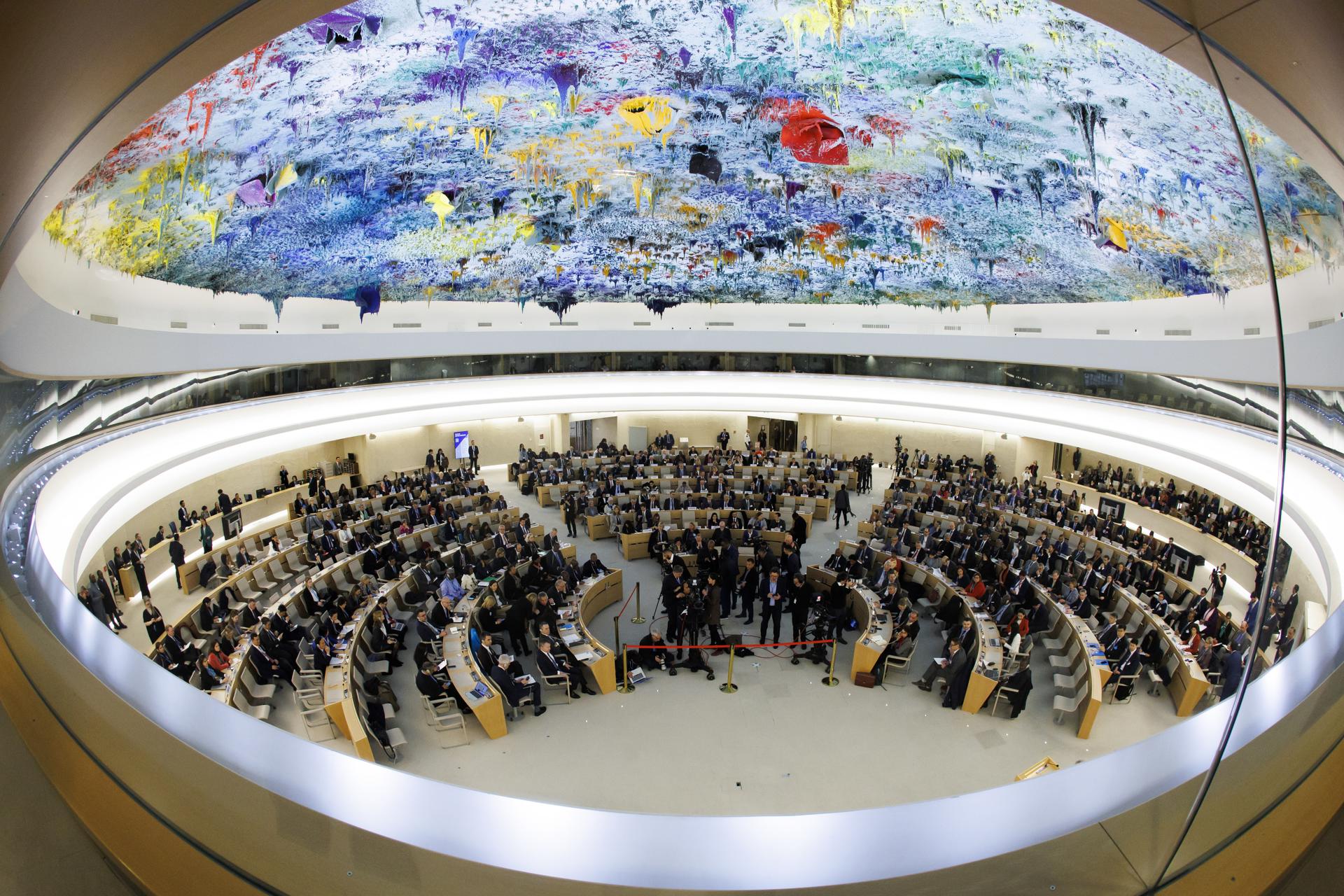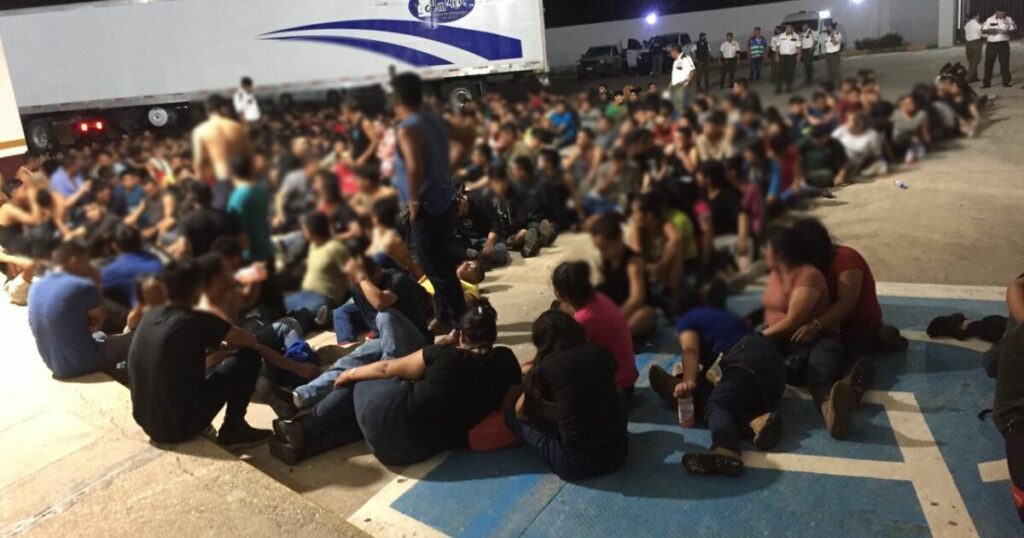Delegations from seven countries in the Human Rights Council of the United Nations Organization demanded the renewal of the mandate of the Group of Experts on Human Rights on Nicaragua (GHREN), in the presentation of its final report that confirms Crimes against humanityheld this Monday in Geneva, Switzerland.
Chile, Canada, Colombia, Costa Rica, Ecuador, Paraguay and Peru condemned the human rights violations and extrajudicial executions committed in Nicaragua, highlighting the deprivation of nationality and the civil and political rights of 317 Nicaraguans – 222 released and exiled, the Bishop Rolando Álvarez and 94 through a judicial resolution- by the Ortega judicial machinery, last February.
The European Union said it was concerned about the “clear results” of the report. “We unequivocally condemn the serious violations and abuses of human rights committed in Nicaragua since April 2018,” said his representative before the Council. At the same time, he deplored the instrumentalization of the justice system in Nicaragua, which encourages impunity to prevail for human rights violations.
He also asked the State of Nicaragua to resume its collaboration and dialogue with international bodies, including those of the United Nations.
In his speech before the Council, the German Jan-Michael Simon, president of the Group of Experts, maintained that the regime headed by Daniel Ortega “instrumentalized all the powers of the State against the opposition, real or perceived as such.”
Ortega sends a recording to reject the GHREN report
However, the regime responded with more aggression. The Attorney General of Nicaragua, Wendy Morales, assured that the State does not accept the “unilateral, biased and imposed” designation of the Council through the GHREN to investigate human rights violations from 2018 to date.
“We are convinced that said Group is nothing more than a curtain to appear non-existent legality in the reports that they prepare on Nicaragua and for this reason, we reiterate that the inputs in these are guidelines of the opposition sectors and media in our country, which They disseminate distorted and false subjective facts and situations about our reality, acting under the guidelines of imperial powers, whose sole purpose is to harm our independence and sovereignty, as well as intervene in our nation,” he expressed through a recorded message.
Since the resolution of the formation of the Group of Experts, in March 2022, Ortega rejected the mechanism. He prevented them from entering the country and did not answer any of the twelve letters sent by the specialists on the investigation of the crimes. Following the same logic, Morales assured that they did not accept the GHREN report because it was “subjective and contrary to the supreme interests of our country.”
One of the findings of the report – which investigated 159 cases and conducted interviews with 291 victims and witnesses – indicates that officials from various government structures committed extrajudicial executions, arbitrary detentions, torture and cruel, inhuman or degrading treatment, arbitrary deprivation of nationality, and violations of the right to remain in one’s own country, among others. The Ortega regime reacted defensively, stating that they will not allow “these malicious reports” to “disqualify and denigrate” the authorities and institutions.
International community must act in the face of the crisis in Nicaragua
The representative for a group of countries –Chile, Canada, Colombia, Costa Rica, Ecuador, Paraguay and Peru– assured that they are “dismayed by the serious and systematic violations and abuses of human rights detailed in the report” of the GHREN. Crimes against humanity have been committed in the country and the situation could worsen, even triggering an even bigger humanitarian crisis, she said.
The call is for the international community to act accordingly to protect the human rights of Nicaraguans and achieve accountability, justice and reparation for the victims.
“We call for the renewal of its mandate – of the GHREN – to advance in more detailed investigations into human rights violations, and abuses against women and girls, indigenous peoples, Afro-descendants, peasants…”, he said.
One of the most repeated recommendations by the members of the GHREN, after the presentation of the executive report at a press conference, on Thursday, March 2, in Geneva, Switzerland, is that the countries initiate judicial processes in cases of rights violations. human rights that occurred in Nicaragua, protected by universal jurisdiction.
Nicaragua must respect the right to nationality
The countries also denounced in their interventions before the Council that the Ortega regime stripped 317 compatriots of their nationality and demanded that international law be respected. Luxembourg on behalf of Belgium and the Netherlands, noted that the measure is “an obvious attempt by the authorities to free themselves from the opposition.” At the same time, he demanded the release of all political prisoners, especially Bishop Rolando Álvarez, sentenced to 26 years in prison after he refused to be exiled from his homeland.
Following the same line, Iceland valued the release of 222 people on February 9 as a “constructive step”, but at the same time, it condemned the decision to strip them of their nationality. For the United States – which received the exiles through a humanitarian parole – described as “deplorable acts” by Ortega, take away their nationality and confiscate their assets.
These actions represent “a setback for Nicaraguans,” he said. “We urge the Government of Nicaragua to restore political participation, freedom of expression and association, and peaceful assembly. “We urge the government to resume dialogue with the international community…”, he said.
Switzerland, Ecuador and France also called on Nicaragua to collaborate with United Nations agencies and restore all the freedoms violated in the last four years in the country.

















